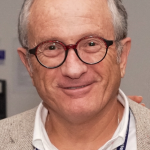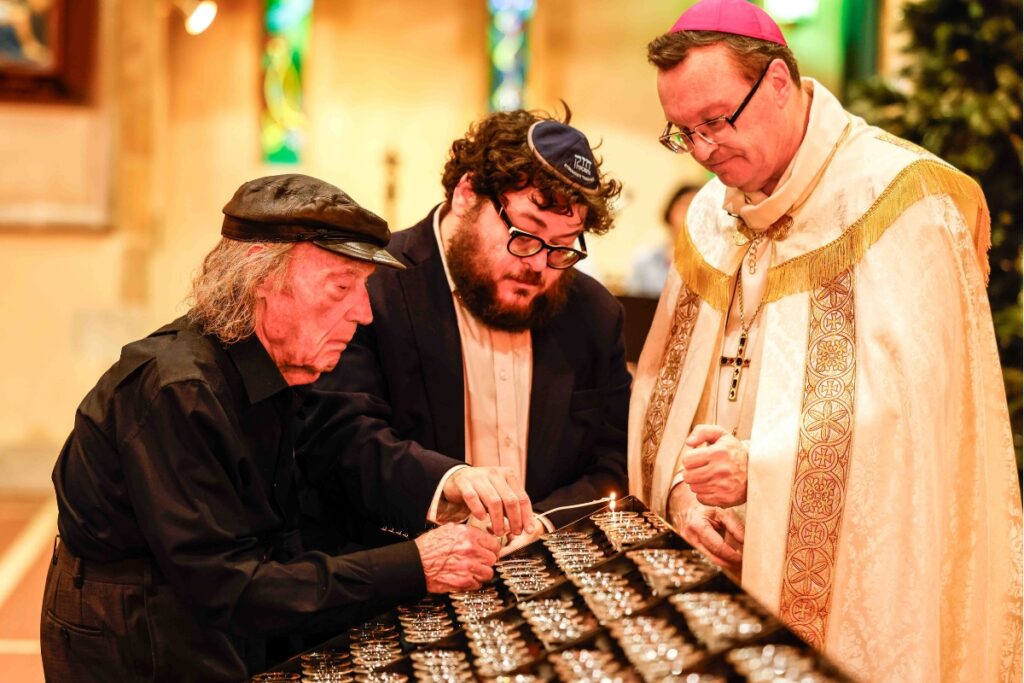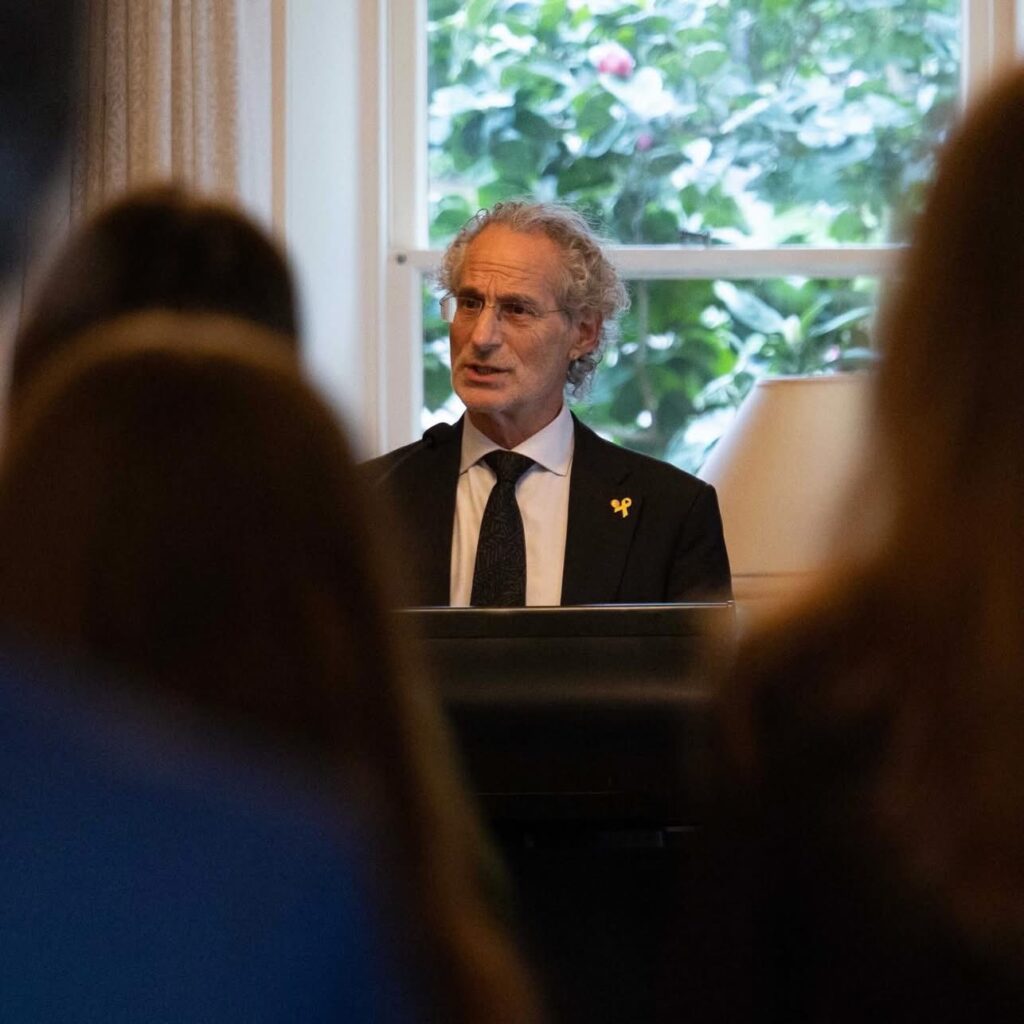Jewish News Article on UPJ’s Israel Mission
Written by David Knoll, immediate past president of the UPJ. Read the article on the AJN site.

Thank you, thank you, thank you.
This is what we heard almost everywhere in Israel on the UPJ Solidarity Mission, when visiting the memorial sites in the south, at the development town of Shlomi in the north, from soldiers in training visiting the site of the destroyed Sderot police station or at Chatira base where we volunteered with Sar-El, and when we visited family members in Jersualem, Kfar Saba or Kibbutz Afek. It mattered to Israelis that we were prepared to book to visit Israel before knowing of the ceasefire now in place.
First, the World Union for Progressive Judaism (WUPJ) Connections Conference held at Bet Shmuel overlooking the Old City of Jerusalem, brought together Jews from across every continent. In particular, inspiring leaders from our youth movement, Netzer, and young adult Zionist movement, Tamar, were there in force. However, what struck me overwhelmingly was a pattern of stories about Jews hiding their identity, not speaking up in university and public spaces, and of Jewish community leaderships some of which did not or could not take up the call to fight back and regain Jews’ rightful place in the public square. Things are tough in Australia, but by reason of our strong and proactive leadership bodes, the hard work being undertaken by the special envoy and her staff, and grassroots activism, the prospects for Australian Jewry may yet be better than it would seem in some other Diaspora communities.
We joined the weekly Havdalah organised by the Israel Movement for Progressive Judaism in Paris Square, Jerusalem, which was followed by a moving rally organised by the Hostages and Missing Families Forum called “We don’t leave hostages behind.” The thanks to President Donald Trump and Steve Witkoff for achieving the return of hostages was palpable everywhere.
Karen and I joined our relative, Jeannette Koll, volunteering at Mizilot Mazon, sorting and preparing vegetables for those who can’t afford, part of Jerusalem’s food rescue project. We did similar work on the UPJ Solidarity Mission with Leket.
The sheer volume of food waste in Israel was brought home to us on both days.
We heard from an East Jerusalem Palestinian, Ameer, who volunteers for Hatzalah and who lives in annexed East Jerusalem, but who cannot become an Israeli citizen because the Interior Ministry is not approving applications for citizenship from within his community. Ameer nevertheless was a great advocate for peaceful coexistence.
In contrast, we heard also from ambassador Mark Regev who explained how a path to peace can be achieved through the Abraham Accords being restarted and expanded.
It would be remiss of me not to mention a source of great optimism. Rabbi Steve Burnstein, the Progressive Rabbi at Kehillat Birkat Shalom, Kibbutz Gezer, told us how his shule became a collection point from the beginning of the war for food packages and other needed supplies for the IDF. He also told the story of a Yemenite Jewish family in which the mother wanted to be part of her son’s bar mitzvah, which she could not do in her local Orthodox shule. Rabbi Steve taught the young man, and at the rehearsal, the grandma, Safta, came to observe the novelty of women participating in a bar mitzvah. Rabbi Steve gently invited Safta to come to stand next to the Torah. It was her first time. She stepped forward, and seeing the Torah up close she cried tears of joy. A truly beautiful example of how Progressive Judaism in Israel is offering a path to religious expression which is becoming ever more widely appreciated.
Our mission’s day in the south had too many highlights to include in a short report, but mention must be made of the extraordinary emotional strength of Chen Cotler who guided us through Kfar Aza. As I write, kibbutz members are deciding whether to return, and what to rebuild and what to keep as an ongoing memorial. We in the Diaspora cannot even imagine having to face such difficult decisions.
Our time at the Nova festival site, walking amongst the personal shrines, created by family and friends for the victims of the massacre, was heavy. Each of us knew that a little piece of us was taken away that fateful Simchat Torah day. We were fortunate to have Rabbi Allison Conyer lead us in prayer and reflection on site at the end of our visit. May the memory of all who were murdered be a blessing.
I wear my trademark watermelon kippah. At the Etihad lounge in Abu Dhabi, Jews from Belgium, the Netherlands and France came up to me to tell me that my willingness to wear it openly gave them hope and confidence that the fear of being identified as a Jewish person, which was pervasive in Europe, was not universal.
With the return of the 20 still living hostages, and as the remaining corpses come home, let us breathe again, as Israelis do, let us pray that the proposed Gaza taskforce implements stage two of the Trump plan, and let us continue to fight back against the waves of antisemitism that we must not allow to engulf us.




